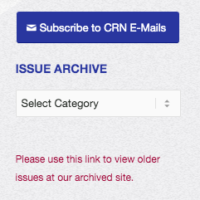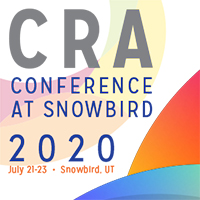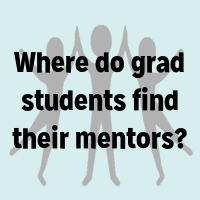Computing Researchers Respond to COVID-19: Running a Virtual Conference
CCC is still working on behalf of the computing research community to catalyze research, but we also want to provide ways to help the community during the health crisis.

Archive of articles published in the 2020 issue.
CCC is still working on behalf of the computing research community to catalyze research, but we also want to provide ways to help the community during the health crisis.

Past issues of CRN can be found on every article webpage. On the right column of the page, under issue archive, click on “Select Category” and view the list of past issues. Immediately below, you can also view recent job postings and a list of keyword tags.

Dear CRA Members,
CRA continues to monitor the situation concerning COVID-19 and its potential impact on our upcoming CRA’s Conference at Snowbird, July 21-23, 2020. At the moment, the circumstances remain too uncertain for us to make any decisions about whether the conference will take place as planned.
We believe there is great value in bringing together the leadership of the computing research community in-person at Snowbird and will do all that we can to make that happen this July. But, obviously, health and safety concerns are paramount and we plan to heed Federal, State and local guidance about travel and public gatherings.
While we are not yet sure when we will make the decision to go ahead with the conference as in the past or modify it in some form, our intention is to decide with sufficient time for those who plan to attend to make their arrangements. Until then, it may be worthwhile to hold off on making travel plans.
If you have any questions about the conference, please direct them to snowbird@cra.org.
This year’s CRA Conference at Snowbird will highlight computing’s potential for social good and the related responsibility for computing research to consider the risks inherent in the work we do. Topics include social impact, positive and negative externalities, risks and opportunities, and responsibility.
Track themes:
Track 1: Computing Departments
Track 2: Computing Education
Track 3: Computing Research in Industry
Track 4: Tech for Good

The Computing Research Association today announced Carla Ellis as the recipient of the 2020 CRA A. Nico Habermann Award. For more than 30 years, Ellis has worked tirelessly to address diversity at all stages of the computing education pipeline. She has contributed significantly to initiatives and organizations dedicated to increasing participation of women and under-represented groups in computing research, including Systers, the CRA Committee on Widening Participation (CRA-WP), and the National Center for Women and Information Technology (NCWIT).
The Computing Research Association today announced it has selected the CARES movement – the Committee to Aid Reporting on Discrimination and Harassment Policy Violations – as the recipient of the 2020 CRA Distinguished Service Award for positively transforming the computing research community rapidly and fundamentally. CARES provides a resource for helping people experiencing issues related to discrimination, harassment, or bullying. The transformative work of CARES is not only aimed at calling attention to issues of sexual harassment and gender bias in the computing research field, but also in identifying and taking positive steps to make our research communities and conferences more welcoming.
The Computing Research Association (CRA) is pleased to honor the CRA Taulbee Survey with the 2020 Service to CRA Award in recognition of 50 years of providing an invaluable resource to CRA as well as to the computing community.
On Thursday, February 27, the CRA hosted its annual Computing Research Leadership Summit for the senior leadership of CRA member societies (Association for the Advancement of Artificial Intelligence, Association for Computing Machinery, CS-Can/Info-Can, IEEE Computer Society, Society for Industrial and Applied Mathematics, and USENIX).
CRA is currently embarking on a strategic planning effort to think broadly and ambitiously about the future of the organization. How CRA works with its member societies is key part of the effort, and CRA used this gathering to discuss the strategic themes and priority outcomes that have emerged from the strategic planning sessions so far. The group considered opportunities for synergy, and areas where organizational priorities intersect. Further discussions on CRA strategic planning continued the next day at the CRA board meeting.
The 2020 CRA Career Mentoring Workshop was held February 27-28 in Washington, DC. More than 130 attendees engaged in a variety of panels and mentoring activities with senior researchers, including several CRA board members, and representatives from government agencies. This year’s workshop was organized by Carla Brodley (Northeastern University) and Dan Grossman (University of Washington) and featured a speed networking session.
Ballots have been distributed to all CRA department chairs and lab directors. Each will have one vote for each open slot on the board. Completed ballots are due March 31. Click here for the slate of nominees.

Where do graduate students find mentors? CERP analyzed results of the 2018 Data Buddies Survey and discovered the most common sources for mentors. Additionally, CERP uncovered some significant differences between where men and women graduate students find mentors.
The annual Data Buddies Survey came to a close in February of 2020. CERP wishes to thank the 134 institutions and departments that made data collection possible, with special appreciation extended to Elite Data Buddies who received at least a 20% response rate from survey respondents.
This website uses cookies so that we can provide you with the best user experience possible. Cookie information is stored in your browser and performs functions such as recognising you when you return to our website and helping our team to understand which sections of the website you find most interesting and useful. You can adjust all of your cookie settings.
